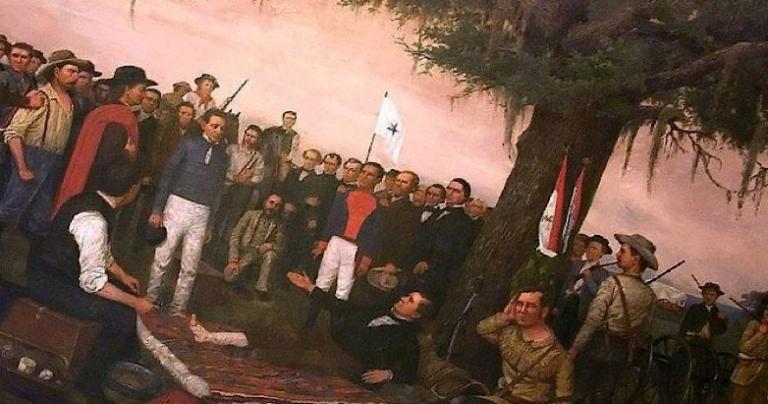
“Justice is whatever benefits the strong!”
In years of leading Republic discussions, some students have agreed with this wretched idea of Thrasymachus’ that justice is whatever the strong do. The fit survive and that is not just what is, but what should be. The Christian says that all God’s children, the weak and the strong, have a right to life and that is a part of justice.
Whichever idea is right, Plato is on the same side as the Christian, siding with the “should be” over the “is” in our world. The rich are filled, but the poor should not be sent empty away . . . Says Jesus and Socrates. If we agree, then reading Republic tempts us to think we are Socrates in the dialogue and that other, wretched person, part of that group is Thrasymachus. We love truth and what to know. The other people cling to their dogma.
Nonsense.
All of us should try reading Book I of Republic and see how much we have in common with all the characters. Plato is too great a writer just to make Thrasymachus all bad. As Book I progresses, Socrates worries that his students will pick up Thrasymachus’ (actually) bad ideas and become little tyrants. One of his former students, Cleitophon, has already made this bad move. After all, Socrates does not know the answers while Thrasymachus claims to have the truth. Socrates is headed toward prison and martyrdom while Thrasymachus does well by selling sophistry.
Thrasymachus has mastered the art, so popular today amongst academics, of discomforting the rulers in just the way the elite enjoy, but never going too far. He placates the powerful by pretending to stir them up, but backing off whenever the dialog gets a wee bit uncomfortable.
Yet Thrasymachus, this friend of tyrants, will be redeemed by Book V of Republic, a full participant in a good discussion. He will be a citizen of a better city: the city of words that never does injustice to any person. Something good happens to Thrasymachus (the character) in this dialog and this is despite the fact that Socrates will try to stifle him.
One of the worst moments for Socrates in all the dialogues takes place in Book I when he uses any argument, even bad ones, to shut Thrasymachus up to try to “save the children.” He does not wish them to love power more than wisdom. Most of us, I hope, agree. To try to save them, he uses the power of his awesome rhetorical powers to shut Thrasymachus down.
Yet just at that moment, Thrasymachus shows that he is salvageable. He concedes an argument, even if it costs him and then he admits what Socrates argues again. Read:
‘T’hen we must conclude, Thrasymachus, that the arts are superior to their subjects and have authority over them.
Thrasymachus conceded as much, but with great reluctance.
Another conclusion: none of the arts, professions, or sciences serves the interest of the stronger; instead, all promote the advantage of the weaker.
After much hesitation and inward struggle Thrasymachus also agreed to this.
At this moment Thrasymachus is a better discussant that Socrates. He is willing to be wrong twice. Socrates keeps saying the children by using his rhetorical power.
God help us. May we be like Thrasymachus in this way and not like Socrates. As long as we can concede, we can be saved.
———————————————-
*I begin an informal summer reading of Republic using Scott/Sterling (a new translation for me). Part 1. Part 2. Part 3. Part 4. Part 5. Part 6. Part 7. Part 8. Part 9. Part 10. Part 11. Part 12. Part 13. Part 14. Part 15. Part 16. Part 17. Part 18. Part 19. Part 20. Part 21. Part 22. Part 23. Part 24. Part 25. Part 26. Part 27. Part 28. Part 29. Part 30. Part 31. Part 32. Part 33. Part 34. Part 35.












